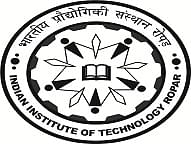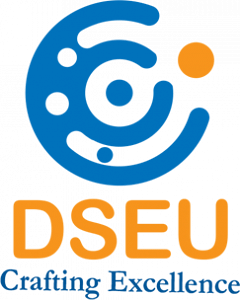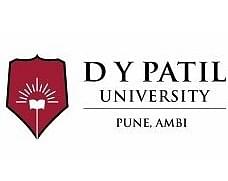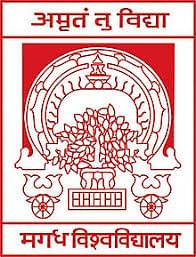Introduction:
The
MBA (Fashion Design) degree program at universities
in Jaipur combines the principles of business administration with the
intricacies of fashion design, offering students a unique opportunity to
explore the intersection of creativity and commerce in the fashion industry.
This innovative program equips students with the knowledge, skills, and
industry insights necessary to succeed in various roles across the fashion
value chain, including design management, product development, retail
management, and brand strategy.
Career Opportunities after complete your degree from
university in Jaipur
1.
Fashion Brand Manager:
·
Graduates
of the MBA (Fashion Design) program can pursue careers as brand managers for
fashion labels and retail chains.
·
They
oversee all aspects of brand development, including product design, marketing
strategies, and brand positioning to enhance brand visibility and
profitability.
2.
Fashion Retail Manager:
·
Retail
managers in the fashion industry are responsible for managing store operations,
optimizing merchandise assortment, and ensuring an exceptional customer
experience.
·
They
analyze market trends, develop sales strategies, and manage inventory to drive
sales and maximize revenue.
3.
Fashion Merchandiser:
·
Fashion
merchandisers play a crucial role in planning and coordinating product
assortments, pricing strategies, and promotional campaigns to meet consumer
demand and achieve sales targets.
·
They
collaborate with designers, suppliers, and retailers to ensure timely delivery
and effective merchandising of fashion products.
4.
Fashion Product Developer:
·
Product
developers work closely with designers and manufacturers to bring fashion
concepts to life by overseeing the product development process from concept to
production.
·
They
coordinate sampling, sourcing of materials, and quality control to ensure that
finished products meet design specifications and quality standards.
5.
Fashion Consultant:
·
Fashion
consultants offer expert advice to individuals, brands, and organizations on
fashion trends, styling techniques, and wardrobe management.
·
They
provide personalized styling services, conduct fashion workshops, and
contribute to editorial content for fashion publications and online platforms.
Admission Process:
1.
Eligibility Criteria:
·
Candidates
must have a bachelor's degree in any discipline from a recognized university or
institution.
·
While
a background in fashion design or related fields may be advantageous, it is not
always mandatory.
2.
Entrance Exams:
·
Some
universities may conduct entrance exams to assess candidates' aptitude for the
MBA (Fashion Design) program.
·
Entrance
exams may test candidates' knowledge in areas such as aptitude, logical
reasoning, and general awareness.
3.
Application Submission:
·
Obtain
the application form for the MBA (Fashion Design) program from the university's
admissions office or website.
·
Fill
out the application form accurately and completely, providing all required
information.
4.
Document Submission:
·
Submit
the necessary documents along with the application form, including educational
transcripts, identification proof, and passport-sized photographs.
5.
Entrance Exam and Interview:
·
Shortlisted
candidates may be called for an entrance exam and/or interview to assess their
suitability for the program.
·
The
interview may include questions about the candidate's academic background,
career goals, and interest in fashion design and management.
6.
Admission Offer:
·
Successful
candidates will receive an offer of admission from the university in jaipur.
·
The
offer letter will include details such as the program start date, tuition fees,
and registration process.
7.
Registration and Enrollment:
·
Upon
receiving the offer of admission, candidates need to complete the registration
and enrollment process as per the instructions provided by the university.
·
This
may involve payment of tuition fees, submission of additional documents, and
attending orientation sessions.
The
MBA (Fashion Design) degree program at top universities in Jaipur offers a
unique blend of business acumen and creative flair, preparing students for
dynamic careers in the fast-paced fashion industry. Graduates emerge as
versatile professionals equipped to drive innovation, lead teams, and create
value across various segments of the fashion value chain. With a solid
foundation in business management combined with specialized knowledge in
fashion design and marketing, graduates of this program are well-positioned to
capitalize on diverse career opportunities and make a lasting impact in the
ever-evolving world of fashion.
MBA (Fashion Design) Degree at University in Jaipur: Registration Process and
Syllabus
Registration Process:
1.
Application
Form Acquisition:
·
Obtain the application
form for the MBA (Fashion Design) program from the university's official
website or admissions office.
·
Alternatively, the
application form may be available for download online or in-person at
designated locations.
2.
Form
Completion:
·
Carefully fill out the
application form with accurate personal and educational details.
·
Ensure that all required
fields are completed, and attach any necessary documents as specified in the
application instructions.
3.
Document
Submission:
·
Gather the required
documents, which typically include:
·
Educational transcripts
or mark sheets from previous academic qualifications.
·
Identification proof
(such as Aadhar card, passport, or driver's license).
·
Passport-sized
photographs.
·
Any other documents as
specified by the university.
4.
Application
Fee Payment:
·
Pay the application fee
through the designated payment mode as specified by the university.
·
Retain the payment
receipt as proof of fee payment, which may be required during the registration
process.
5.
Submission
of Application:
·
Submit the completed application
form along with the required documents and fee payment receipt to the
university's admissions office.
·
Ensure that the
application is submitted before the specified deadline to be considered for
admission.
6.
Admission
Review:
·
Upon receipt of applications,
the university will review them based on eligibility criteria and academic
qualifications.
·
Shortlisted candidates
may be invited for further evaluation, such as entrance exams, interviews, or
group discussions.
7.
Merit
List and Counseling:
·
After the evaluation
process, the university will prepare a merit list of selected candidates.
·
Shortlisted candidates
will be informed about counseling sessions, during which they can choose their
preferred specialization and complete the admission formalities.
8.
Document
Verification:
·
Shortlisted candidates
will be required to submit original documents for verification during the
counseling process.
·
Once documents are
verified, candidates will be issued provisional admission letters.
9.
Fee
Payment and Enrollment:
·
Pay the tuition fees and
any other applicable fees as per the university's fee structure.
·
Complete the enrollment
process by submitting the required documents and undertaking the necessary
formalities.
10. Orientation Program:
·
Attend the orientation
program organized by the university to familiarize yourself with the campus,
faculty, facilities, and academic policies.
Syllabus:
1.
Fundamentals
of Management:
·
Introduction to
management principles, theories, and functions.
·
Understanding
organizational behavior, leadership, and decision-making processes.
2.
Fashion
Design and Innovation:
·
Elements of fashion
design, including color theory, fabric selection, and garment construction.
·
Innovations in fashion
technology, sustainable design practices, and emerging trends.
3.
Marketing
and Brand Management:
·
Principles of marketing
management and brand development in the fashion industry.
·
Market research,
consumer behavior analysis, and brand positioning strategies.
4.
Fashion
Retailing and Merchandising:
·
Retail management
techniques, store operations, and visual merchandising strategies.
·
Supply chain management,
inventory control, and retail analytics in the context of fashion retailing.
5.
Fashion
Forecasting and Trend Analysis:
·
Techniques for trend
forecasting, trend spotting, and trend analysis in the fashion industry.
·
Understanding consumer
preferences, cultural influences, and global market trends.
6.
Financial
Management in Fashion Business:
·
Financial planning,
budgeting, and cost control in fashion businesses.
·
Analysis of financial
statements, pricing strategies, and revenue management in the fashion industry.
7.
Entrepreneurship
and Business Development:
·
Entrepreneurial
opportunities in the fashion industry, including starting and managing a
fashion business.
·
Business plan
development, venture capital financing, and legal aspects of entrepreneurship.
8.
Global
Fashion Markets and International Business:
·
Overview of
international fashion markets, trade agreements, and export-import regulations.
·
International business
strategies, market entry modes, and cross-cultural management in the fashion
industry.
9.
Fashion
Communication and Promotion:
·
Communication strategies
for fashion brands, including advertising, public relations, and digital marketing.
·
Creative direction,
branding campaigns, and social media engagement in fashion promotion.
10. Industry Internship and Project Work:
·
Hands-on experience
through internships with fashion companies, design houses, or retail brands.
·
Project work involving real-world
challenges and opportunities in the fashion industry, culminating in a
comprehensive report or presentation.
The registration process
for the MBA (Fashion Design) program at affordable universities in Jaipur is
straightforward, involving the submission of application forms, document
verification, and fee payment. The program's syllabus covers a wide range of
topics, blending management principles with fashion design concepts to prepare
students for leadership roles in the fashion industry. Through a combination of
theoretical instruction, practical training, and industry internships, students
gain the knowledge and skills necessary to excel in the dynamic and competitive
world of fashion business management. Graduates emerge as creative thinkers,
strategic leaders, and innovative entrepreneurs poised to make a significant
impact in the global fashion landscape.












